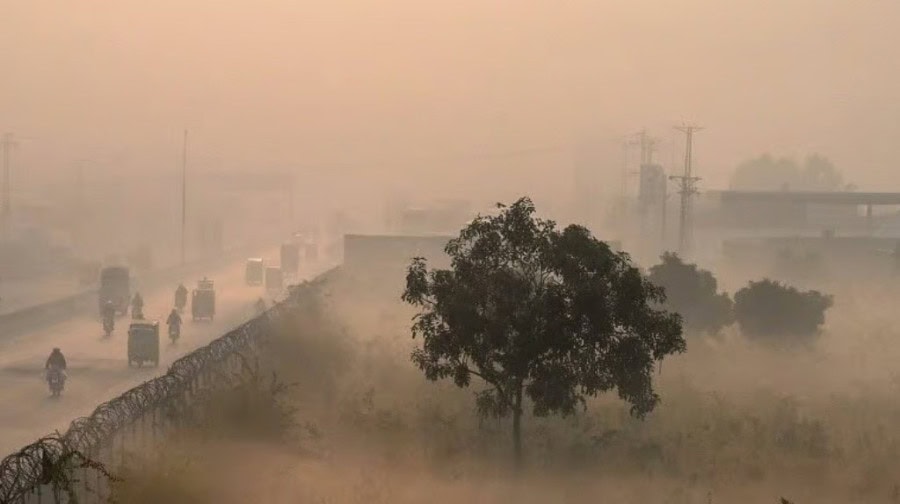By Ahmed Bin Ali
As winter approaches, Pakistan is grappling with a severe smog crisis. This year, the Air Quality Index (AQI) has alarmingly soared beyond 2,000 in some areas. NASA’s satellite images reveal dark gray clouds stretching ominously across the country, painting a grim picture of the air quality.
In recent days, Lahore has emerged as one of the most affected cities, and now, Multan is following suit. The dense smog has enveloped buildings and streets, making daily life increasingly challenging. The level of pollution is so intense that simple tasks have become daunting.
Despite government interventions—such as closing schools and factories and enforcing an 8 PM curfew for shops—the lack of proper monitoring has undermined these efforts. From Monday, most outdoor activities have been banned in an attempt to mitigate exposure. However, such measures have not been sufficient to address the root cause of the issue.
A more effective approach would involve shutting down pollution-heavy industries instead of educational institutions. People can take personal precautions, such as investing in air purifiers or using electrostatic cotton sheets in inverters as a cost-effective alternative for cleaner indoor air.
On a larger scale, Pakistan could take inspiration from the Clean Air Act of 1956, a landmark legislation implemented by the UK after the catastrophic “Great London Smog.” This act introduced smog-controlled zones, stringent industrial regulations, and a significant reduction in coal burning. If Pakistan adopts similar policies, it could pave the way for a sustainable reduction in air pollution.
Public Awareness and Safety
It is crucial for citizens to understand the gravity of the situation. People, particularly vulnerable groups such as young children and the elderly, should limit outdoor exposure. Wearing masks should be mandatory to reduce inhalation of harmful particles.
The smog crisis is not just an environmental issue—it is a public health emergency. Effective legislation, strict enforcement, and public cooperation are the need of the hour to combat this growing menace. Pakistan must act decisively to safeguard its future.










